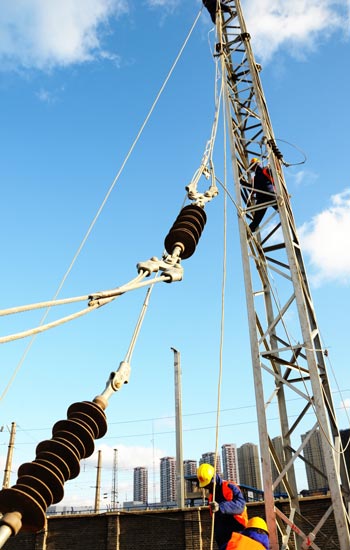
|
 |
|
Workers install a power grid system for the Harbin-Dalian passenger railway terminal in Dalian, Liaoning province. [Photo/China Daily] |
Economists say they expect more stimulus policies to spur economy
A new survey of leading Chinese economists, suggests they expect to see lower inflation and more government stimulus in the third quarter, and higher confidence in the second half of this year.
The quarterly survey from the China Economic Monitoring and Analysis Center under the National Bureau of Statistics was conducted among 78 leading economists, and showed that 72 percent of them expected higher than 8 percent growth this year supported by further economic policies.
The survey's overall index, which indicates respondents' confidence in the country's economic situation, is expected to rebound to 4.8 in the second quarter, compared with 4.48 in the first three months. The evaluation range for the index is from 1 to 9.
Respondents said they expected China's inflation rate to further ease in July, because of continued low food prices, giving the government more leeway to loosen price policies, economists said.
Many experts predicted that the consumer price index, a main gauge of inflation, may drop to 1.7 percent in July from June's 2.2 percent, to reach its lowest level in 30 months.
Lian Pin, chief economist with the Bank of Communications Co Ltd, said that if no unexpected factors arise in the third quarter, the CPI may reach 2 percent during the July-to-September period.
To support economic growth, the government's monetary policy may move to "moderate easing" from its current "prudent" stance. Further cuts are expected in interest rates and reserve requirement ratios in the third quarter.
The People's Bank of China, or the central bank, lowered the RRR twice in the first half of the year, by 50 basis points each time, to increase market liquidity.
It also lowered benchmark interest rates twice in a month, responding to worse-than-expected economic indicators in the second quarter.
"The central bank may cut benchmark interest rates again this quarter, while fiscal deposits may increase faster during these three months," said a recent report from the China Securities Co Ltd.
Overshadowed by weaker GDP growth that reached 7.6 percent in the second quarter, the slowest growth rate in three years, investors in the stock market became pessimistic.
The Shanghai Composite Index, a tracker of the biggest listed companies in China, has slumped 5.2 percent this month, and closed on Monday at 2109.91, its lowest since March 2009.
The stock index has now dropped 14 percent from the year's high on March 2 amid concerns that the economic slowdown is deepening and European debt crisis is worsening.
According to the survey, 52 percent of the economists expect a decrease in the country's trade surplus in the second half and relatively stable growth in exports and imports, while the global economy remains at a slow recovery rate.
Pan Jiancheng, deputy director with the China Economist Monitoring and Analysis Center, said: "The increase in investments may accelerate for the rest of this year, stimulated by ongoing policy fine-tuning, to 21.8 percent for the whole year," compared with 23.8 percent in 2011.
According to the economists surveyed, to support investment, new bank lending is likely to continue increasing and may rise by 700 billion yuan ($109.7 billion) in July.
The approval of major projects, especially infrastructure construction, may speed up in the coming months, driving up bank lending and boosting fixed-asset investment growth, added E Yongjian, a researcher with the Bank of Communications.
By the end of June, total lending for fixed-asset investment was 20.28 trillion yuan, an increase of 10.3 percent, 0.4 percentage points higher than at the end of March, according to the data from the central bank.
As stimulus policies continue, economic growth is expected to rebound gradually, but at a moderate pace, according to the economists polled.
They noted the recent rebound in real estate trading volumes, and the moderately dropping house prices.
"But the market is still far from its control targets, as prices have yet not declined to a reasonable level," the survey added.
"Most economists believed that it is necessary to keep property control measures stable to prevent house prices bouncing back."
chenjia1@chinadaily.com.cn


 Washington to remain focused on Asia-Pacific
Washington to remain focused on Asia-Pacific RQFII target blue chips amid bear market
RQFII target blue chips amid bear market Australian recall for top two exporters
Australian recall for top two exporters China fears new car restrictions
China fears new car restrictions